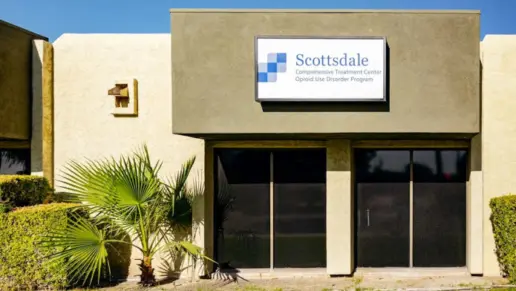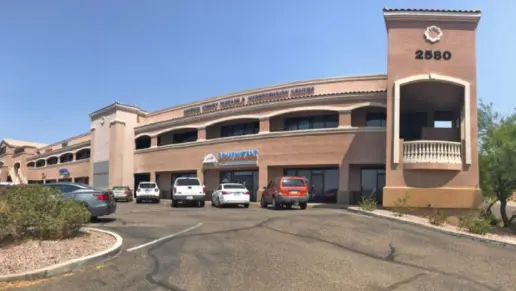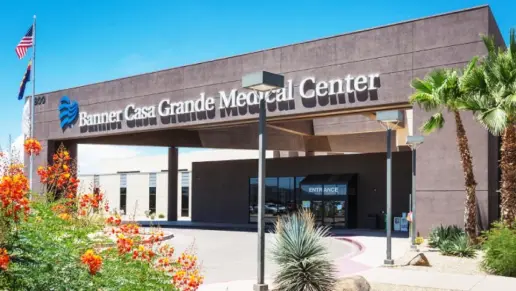About Buena Vista Drug & Alcohol Recovery Centers of Arizona
Buena Vista Drug & Alcohol Recovery Centers of Arizona offers alcohol and drug rehab programs in several locations throughout Arizona. The Cave Creek, Arizona location has a residential inpatient program where they medically manage your recovery. They also offer outpatient services at this location. The center works with most major health insurance providers. Check with financial services for help in understanding your insurance coverage.
They offer medical detox and medication assisted treatment (MAT) to help you in your addiction recovery process. They offer alcohol detox and drug detox programs. Medical monitoring is important during the detox process since some of the side effects of withdrawal can be potentially life threatening. The center has programs to help you detox from opioids, such as heroin, Vicodin, and OxyContin. They also help you detox from prescription drugs and stimulants such as methamphetamines.
After your drug detox program, it’s best to move to one of the other treatment programs. These include inpatient and outpatient programs. The inpatient programs offer case managers who guide you through the process and also include your family. You’ll have individual, group, and family therapy while you live at the facility. It’s important to educate everyone in the family about your substance use disorder since family dynamics often play a significant role in the disease of addiction.
In the inpatient and outpatient programs you’ll be introduced to the 12 Step recovery model. The outpatient program allows you to live at home while still getting the care you need. You’ll get weekly individual therapy as well as regular group therapy sessions. You’ll also learn about relapse prevention. Your case manager is your advocate who’ll make sure you’re staying in the program that’s best for you. They’ll even work with your family.
If you need more guidance but have completed the inpatient program, you can opt for the intensive outpatient program (IOP). This is a more structured program, but you’ll live at home. All the programs offer trauma therapy, grief therapy, and other evidence based therapies.
Latest Reviews
Rehab Score
Gallery

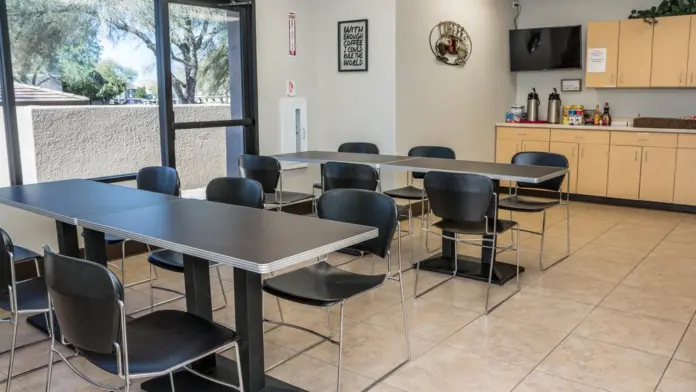
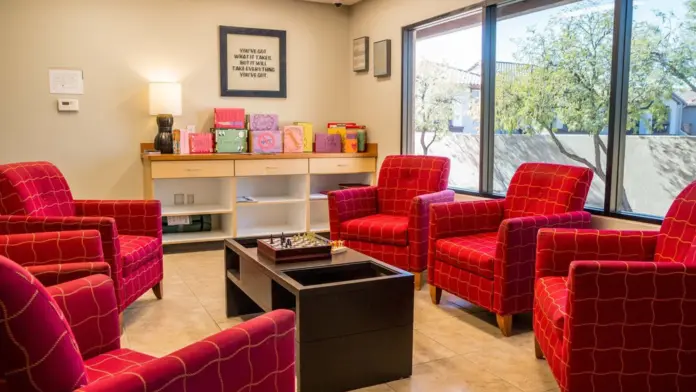
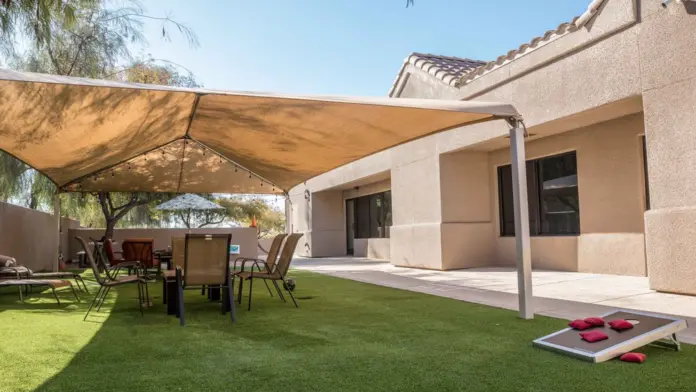
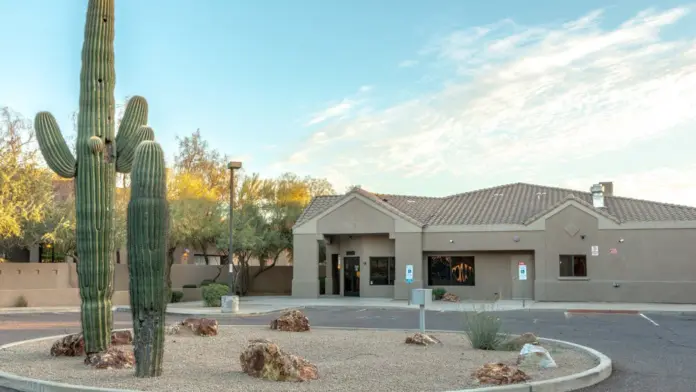
Location
Accepted Insurance
Other Forms of Payment
Private insurance refers to any kind of healthcare coverage that isn't from the state or federal government. This includes individual and family plans offered by an employer or purchased from the Insurance Marketplace. Every plan will have different requirements and out of pocket costs so be sure to get the full details before you start treatment.
Self-pay involves paying for treatment out of your own pocket. You can use savings or credit, get a personal loan, or receive help from family and friends to fund your treatment. If you don't have insurance or your insurance plan doesn't cover a specific program, self-pay can help ensure you still get the care you need.
Military members, veterans, and eligible dependents have access to specific insurance programs that help them get the care they need. TRICARE and VA insurance can help you access low cost or no cost addiction and mental health treatment. Programs that accept military insurance often have targeted treatment focused on the unique challenges military members, veterans, and their families face.
Medicaid is a state based program that helps lower-income individuals and families pay for healthcare. Medicaid covers addiction treatment so those enrolled can use their coverage to pay for rehab. When a program accepts Medicaid the client often pays very little or nothing out of their own pocket.
Addiction Treatments
Levels of Care
Treatments
Substance rehabs focus on helping individuals recover from substance abuse, including alcohol and drug addiction (both illegal and prescription drugs). They often include the opportunity to engage in both individual as well as group therapy.
Programs



Clinical Services
Also known as CBT, cognitive behavioral therapy in Arizona is one of the most common types of psychotherapy. It offers a structured method of counseling that effectively treats substance use disorder and dual diagnosis disorders.
Group therapy is any therapeutic work that happens in a group (not one-on-one). There are a number of different group therapy modalities, including support groups, experiential therapy, psycho-education, and more. Group therapy involves treatment as well as processing interaction between group members.
In individual therapy, a patient meets one-on-one with a trained psychologist or counselor. Therapy is a pivotal part of effective substance abuse treatment, as it often covers root causes of addiction, including challenges faced by the patient in their social, family, and work/school life.
The goal of motivational interviewing in Arizona is to enhance your confidence in your ability to make changes in your life. It encourages you to commit to change and plan for the process of making those changes that will allow you to reach your goals.
Trauma therapy focuses on helping you understand and manage emotional and physical responses to past trauma. Using therapeutic interventions, you learn to reframe the experience. This helps reduce your anxiety and gives you greater control over your life.
Residents of Arizona who are experiencing relationship problems may benefit from couples therapy. This form of psychotherapy helps couples express their feelings, resolve conflicts, and increase intimacy and affection.
Family therapy involves sessions where members of the family discuss how addiction has affected them individually and collectively. Therapists can guide families in developing coping strategies that help support their loved one's recovery while also focusing on their own emotional health.
Accreditations

State Licenses are permits issued by government agencies that allow rehab organizations to conduct business legally within a certain geographical area. Typically, the kind of program a rehab facility offers, along with its physical location, determines which licenses are required to operate legally.
State License: Arizona

The Joint Commission, formerly known as JCAHO, is a nonprofit organization that accredits rehab organizations and programs. Founded in 1951, the Joint Commision's mission is to improve the quality of patient care and demonstrating the quality of patient care.
Joint Commission Accreditation: Yes
Contact Information
29858 N Tatum Blvd
Cave Creek, AZ 85331
















